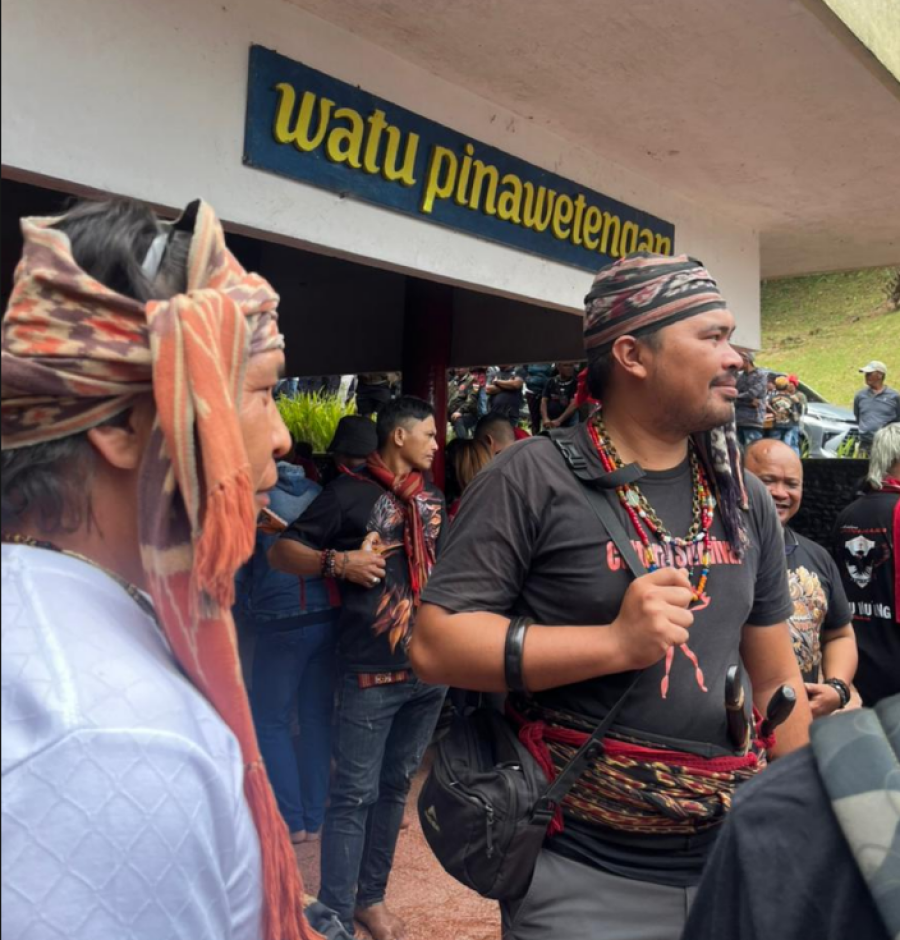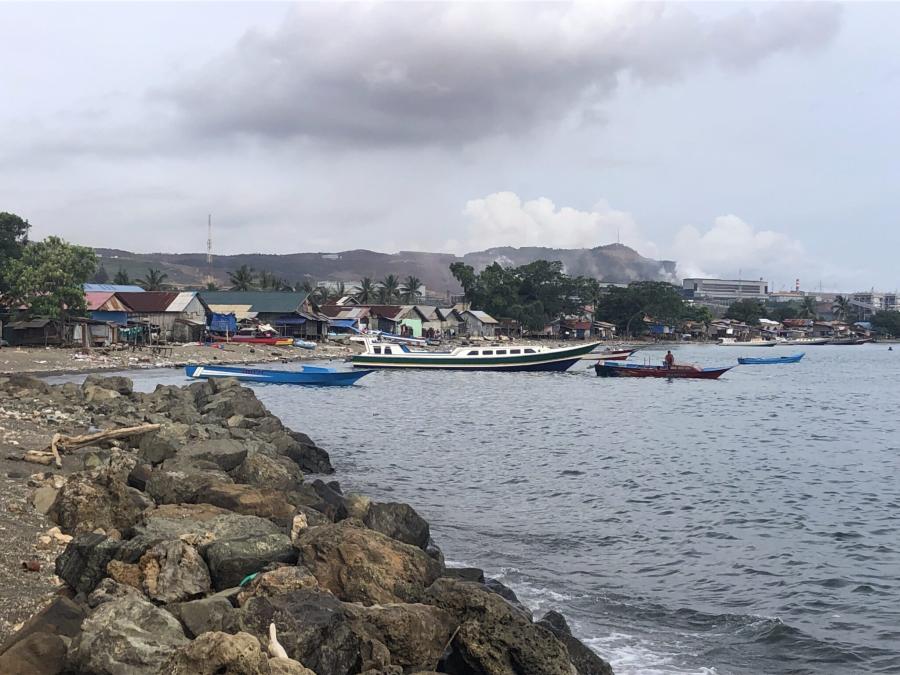Location, Land, and Climate
The Weyewa live on Sumba, one of the islands of eastern Indonesia. On the outer are of the Lesser Sundas, Sumba is 75 miles long and 200 miles wide. Grassy plateaus dominate central Sumba, the southern coast has small, scattered mountain area, the northern coast is a dry lowland, and the western part is a plateaus surrounded by hills. The soil is thin and poor for farming. The soil is thin and poor for farming. The 85,000 Weyewa, one of several ethnic groups on Sumba, are located on the western side of the island.
The climate of Sumba is dry , although the west coast gets much more rain than the east. The dry season runs from March to October; November to February is monsoon season.
Livelihood
Most people on Sumba, including the Weyewa, live in small settlements along the rivers and on the grassy plateaus, where animals graze and some farming is possible. The Weyewa grow rice, maize, and millet, a s well as wet rice in areas of the wetter cost. For livestock, they raise mostly water buffalo, pigs, and, for export, horses and cattle. Water buffaloes serve as work animals and displays of wealth; they are also the sacrificial meals in rituals. Elaborately decorated textiles, women by the women, are exported to some extent, but, more importantly,. they are used in the rituals.
Cultural Systems
In islands group themselves according to kinship ties. Kin groups, known as Kabisu, are the main social unit.
Many of the peoples on Sumba have complex rituals to celebrate stages in life, such as birth, marriage, and death. The Weyewa in contrast, focus their rituals on sudden changes due to disasters, rather than on foreseeable cycles of seasons and life. Misfortune originates with incorrectly performing duties owed to their ancestors - it reveals the ancestors' wrath. Ceremonies diagnose the trouble, placate the ancestors, and restore harmony to the world.
The islanders, including the Weyewa, assign a masculine of feminine character to almost everything. A male from one Kabisu must marry a woman from a different one. The family of the bride, the wife-givers, is considered masculine in that relationship. The groom's family, the wife-takes, is feminine. gifts are always exchanged at a marriage. Masculine gifts - gold, weapons, and horses - are given to the bride's feminine and go to the groom's family.
To the Weyewa, all aspects of life are connected with ancestral spirits. They believe they must obey the `word' of their ancestors. This word is a promise and a duty the descendants must carry out; if they don't - if a ceremony is performed improperly or someone forgets to inform spirits of an event - hardship or ill-fortune will befall the negligent person or family.
The Weyewa perform "ritual speech" to achieve communion between the custodians of tradition and their descendants. Ritual speech is performed in poetic from in all ceremonies.
Indonesia used to recognize the indigenous system of worship and belief, called Marapu, but no longer. In December 1987, the Indonesian government in Sumba outlawed some forms of ritual speaking, condemning it as wasterful and backward. The actual speeches weren't banned but rather the performances of which they were a part. At all ceremonies, a prayer and the slaughter of water buffalo are customary. The government wants to stop the slaughter of livestock, but for the Weyewa, compliance with the ruling means breaking a promise to their ancestors and inviting misfortune. The Weyewa are now documenting their ritual speeches to preserve these elements of their culture.
SUGGESTED READINGS
James J. Fox, "Harvest of the Palm," Eological Change in Eastern Indonesia, Harvard University Press, 1977.
Janet Hoskins, "Entering the Bitter House: Spirit Worship and Conversion on West Sumba," Indonesian Religions in Transition, University of Arizona Press, 1987.
Kal Muller, East of Bali: Timor to Lombok, Paradise Books, 1991.
SUPPORT ORGANIZATION
Legal Aid Institute, LEABAGA BANTUAN HUKUM, Jalan Diponegoro #74 Jakarta, Indionesia.
Current Problems
Indonesia doesn't recognize the ancestor worship of the Sumba islanders and the Weyewa as a religion. State ideology calls upon its citizens to demonstrate national unity by believing in one God, excluding ancestor worship. The requirement of everyday life make it hard for the Weyewa to avoid conversion. The government is pressuring the Weyewa to end their tirual practices and convert to Islam, Buddhism, or Christianity. Government-sponsored irrigation programs, which have greatly increased rice production, have also undermined the spiritual and moral authority of the ancestor cults that controlled the planting, harvesting, and distribution of crops.
A child must have a birth certificate endorsed by Christian officials to enroll in school. As more, young Weyewa convert to Christianity, they abandon the obligation to fulfill their ancestors' words. This means abandoning an important aspect of what makes them think of themselves as Weyewa - their commitment and link to the past.
Article copyright Cultural Survival, Inc.



